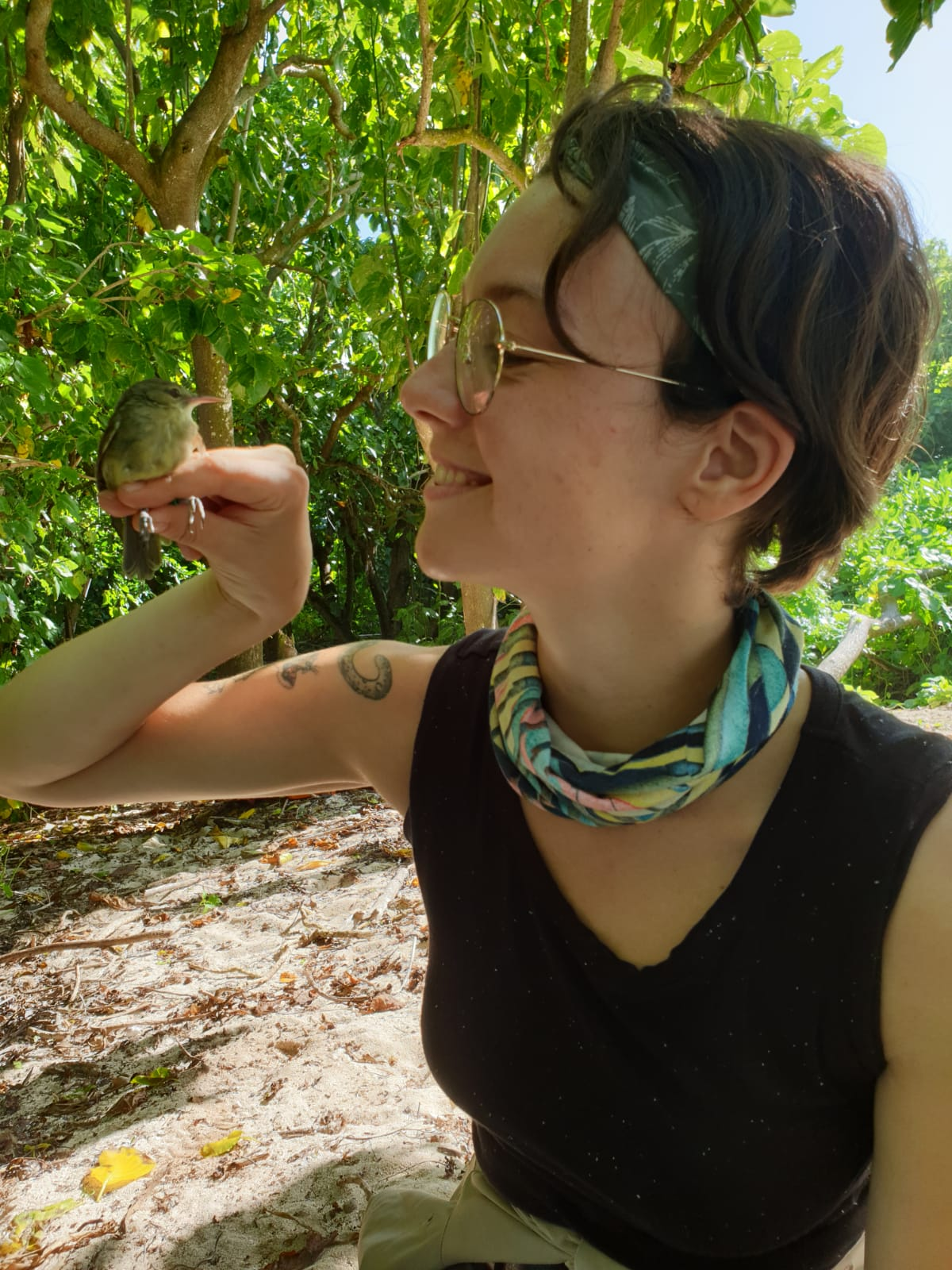The offspring of Seychelles warblers (Acrocephalus sechellensis) are surprisingly unaffected by losing a parent, whether through death or divorce, even while they still need adult care. The finding may be quite specific to this one species, which has a relatively unusual way of raising its young, but it still goes so much against expectations that it may make biologists question assumptions about other birds.
Seychelles warblers are a small songbird native to a few Seychelles islands, in a rare case of accurate bird naming. They have been intensively studied by zoologists for many years, creating a rich database of behavioral and genetic data to draw on. Dr Frigg Speelman of Macquarie University used 25 years of data to compare the health of adult birds whose parents had ceased to be together, either through death or “divorce”, where one bird left.
Speelman and colleagues measured body condition, telomere length, and the proportion of red blood cells, and found almost no difference for any of them, neither on the death of a parent nor for one leaving for another mate.
The result is unexpected for two reasons. Firstly, it is often thought that among species that usually mate for life, when partnerships do break up, it indicates an incompatibility that would lead to fewer, or less healthy, offspring. Humans might have many reasons to leave a partner, but for birds, breeding failure seems like the obvious one. Speelman previously found that low egg production is a factor in warbler divorce, she noted, so it’s surprising that quality doesn’t also play a part.
Furthermore, some of these divorces occurred while the chicks were still dependent on adults. Surely, one would think, losing a parent would mean less food, no matter how hard the remaining parent tried to compensate, and that would have consequences later in life.

Dr Frigg Speelman with a Seychelles warbler that is doing fine.
Image Courtesy of Frigg Speelman
The outcome is made somewhat easier to understand by knowing that warblers are cooperative breeders. There are not enough breeding sites on the island for every adult warbler pair, so many become helpers, bringing food to others’ young. Sometimes they assist in raising close relatives, such as siblings or grandchildren, helping to ensure their genes flourish. In other cases, assistant roles are thought to provide good practice, making for better parenting once a site is secured.
The consequences are that when a parent dies, or a divorce occurs, there’s almost always someone ready to take their spot. “When new breeding vacancies arise, they are filled up very quickly, sometimes within a couple of hours,” Speelman told IFLScience. Apparently, these step-parents do a good job. You might say it takes a village to raise a Seychelles warbler.
Although that clarifies how chicks survive the loss of a parent prior to fledgling, it still doesn’t explain why divorce happens at all when egg numbers are normal.
Speelman added some nuance to IFLScience, noting the team are not able to test the health of the chicks before they leave the nest. “These little birds like to nest high in the canopy, reaching up to 12 meters [39 feet]. Reaching those nests is impossible because the trees are too fragile to support a climb and the canopy is very dense,” she said. However, even if things are bad for a while, the chicks apparently recover.
Surprising findings seldom stand alone, and the team are keen to test other outcomes, such as the health of grandchildren of divorced warblers.
Back to the life advice, though. If you were going to get a warbler’s opinion on whether it’s best to stay in a relationship or leave, they’d probably recommend doing what is best for you, because the kids will be ok either way.
The study is published in Proceedings of the Royal Society B: Biological Sciences.
Source Link: Divorce Doesn’t Hurt The Children – At Least If They’re Birds